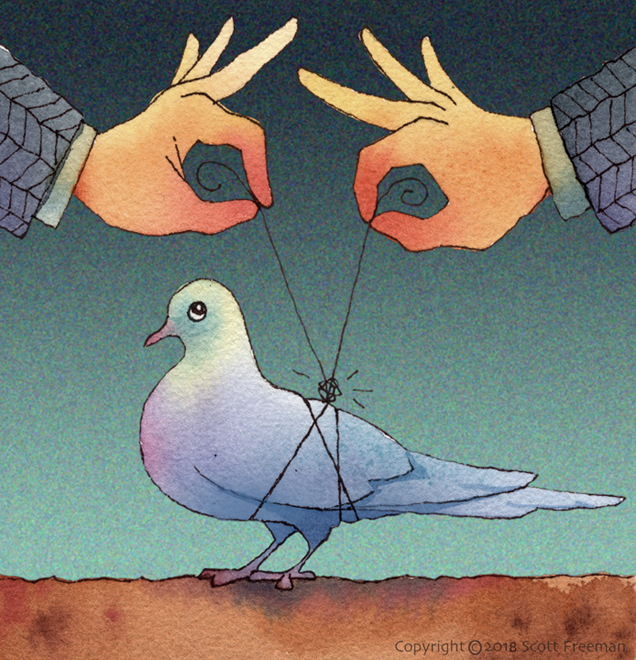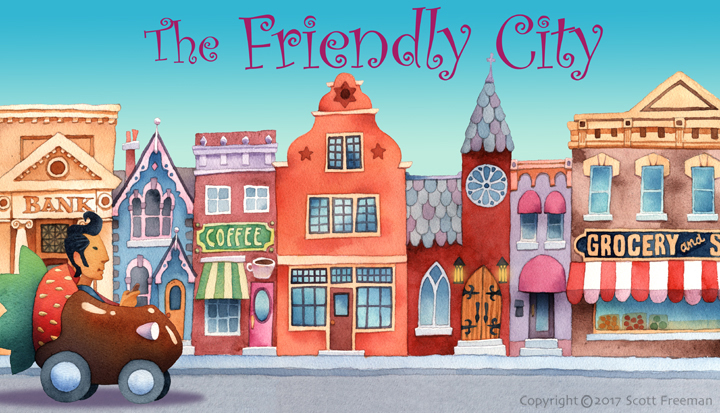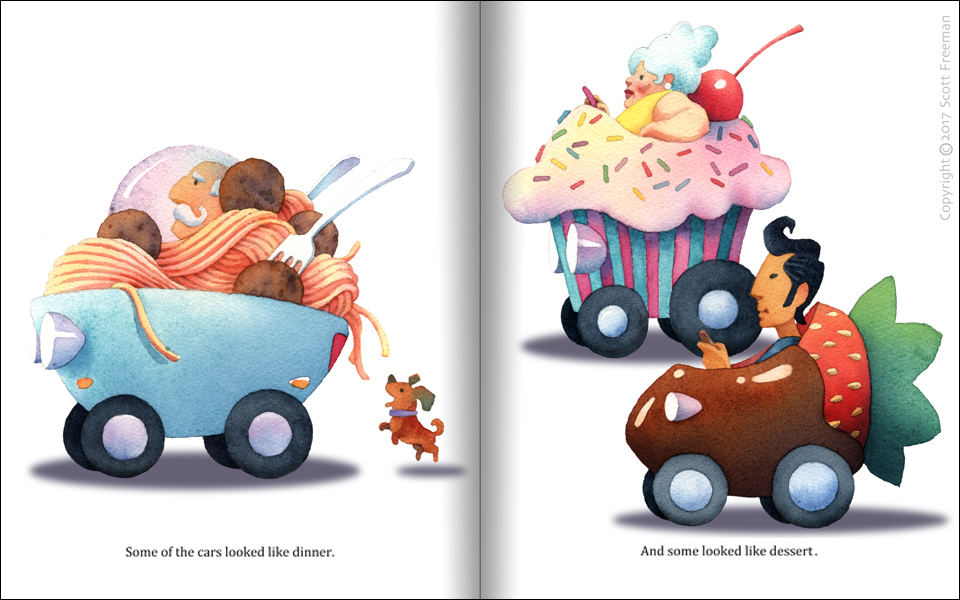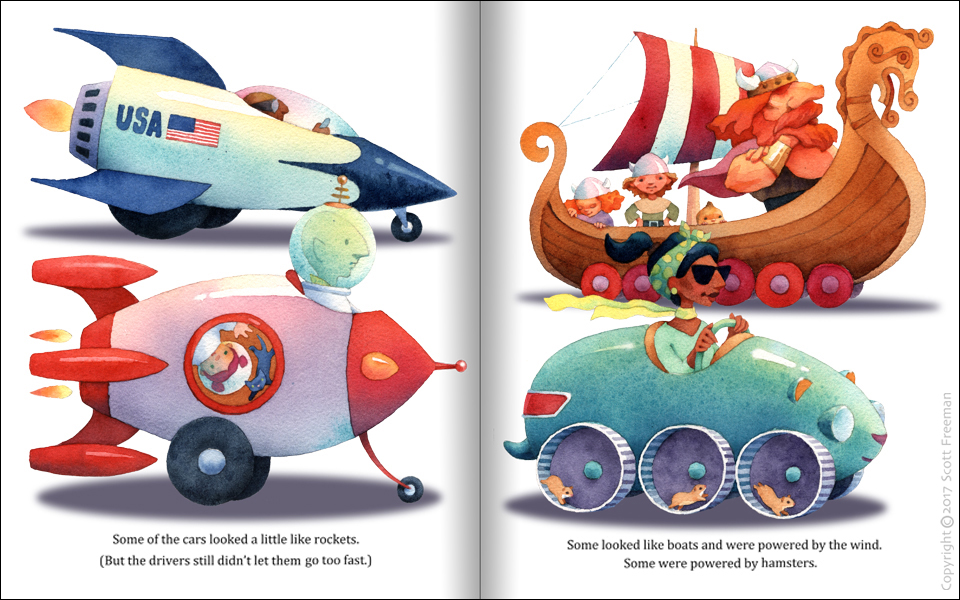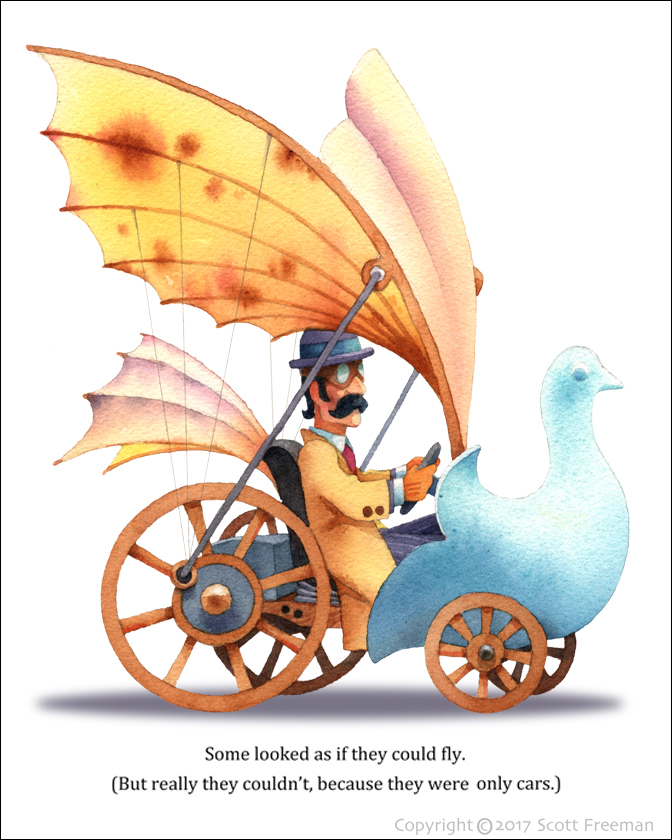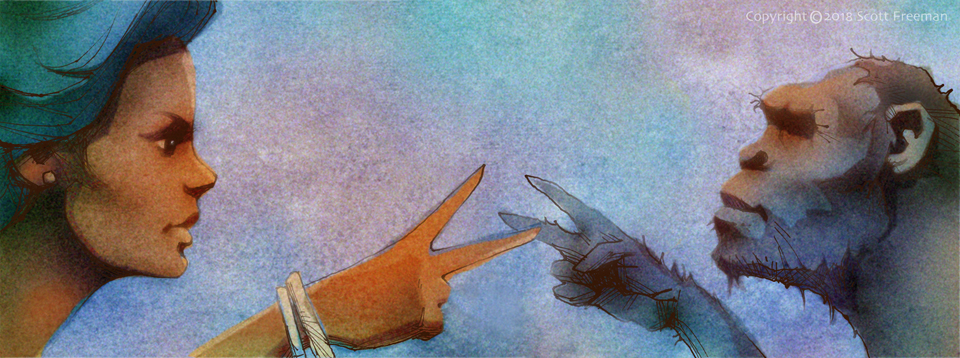
The Science of Rock-Scissors-Paper
In my ongoing discussion with “skeptics”, my “skeptic” friends often appeal to the fact that the vast majority of living scientists, and educated people in general, hold to a belief in microbes-to-man evolution. I do recognize that this is the case.
My “skeptic” friends uniformly assume this must be because the scientific evidence is so overwhelming that only someone with a strong, predetermined, religious bias would seriously hold to creationism. Since relatively few hold to young earth creationism, they sometimes wonder if we think there is an anti-creationist conspiracy in academia keeping the truth of creationism from getting out.
I would like to enthusiastically offer my layman’s observations on those two assumptions.
ASSUMPTION #1: Creationists have a predetermined faith position into which they must fit all scientific data. They do not follow the evidence wherever it may lead, (like real scientists do).
It might surprise some that I actually agree with this assumption. Creationists are, in fact, quite open about their bias right out of the gate. Creationists do begin from a faith position that they choose not to question.
The fascinating point that I want to make here is that materialist evolutionists do exactly the same thing. Not something similar, but exactly.
Belief in microbes-to-man evolution is a faith position, complete with its own dogma that may not be questioned if one is to remain in good standing in academia among one’s peers. This isn’t merely my opinion. It is a fact that we can all observe. I will prove this shortly.
I would also point out that this notion shouldn’t be taken as an insult, but it is. It is insulting to materialists and “skeptics” only because they don’t want to see themselves this way. They’ve spent a lot of ink and pixels “accusing” the other side of acting from faith, while positioning themselves as standing strictly on scientific evidence. I am repeatedly told that there is no evidence for God. What nonsense.
Most often in my discussions, I no longer even attempt to prove that creationism is correct. That is far too ambitious a goal. My aim now is simply to get materialists to admit that they are also acting from a faith position when it comes to beliefs around the origins of the universe and life. I say we’re on equal footing. (Actually, as a theist, I believe that my position is the more rational of the two since my position is at least possible, but I’m trying to seek common ground).
But they will not budge. They have made the stakes for themselves too high.
ASSUMPTION #2: Creationists believe in an academia/media conspiracy designed to keep the truth from getting out, (like flat-earthers do).
This one I don’t agree with. It’s completely unnecessary to believe in such a conspiracy. The truth is much simpler than the existences of a secret conspiracy.
The truth is this: creationism is so embarrassing that it renders a conspiracy unnecessary.
Seriously. Creationists believe in an earth only thousands of years old, that God created human life fully formed in His image, and that a historical guy named Noah preserved humanity on an ark in a global flood that shaped geology. Anyone who claims to believe any of this in a secular academic setting commits career suicide.
It’s not a question of whether or not there is corroborating scientific evidence for all of this, (because there is), it is a question of academic respectability and peer approval. Creationism is not intellectual-sounding, and we all want to be thought of by others as intelligent people.
Furthermore, to even admit the possibility that science might corroborate these stories would amount not only to scientific evidence for the existence of God, but even worse, to evidence for the existence of the God of the Bible. The secularist establishment will never allow that if it can be avoided. And it can be avoided by having faith that science will someday fill in the existing knowledge gaps.
The problem with questions of origins is that ALL of the possibilities are embarrassing! It’s just that we’ve been conditioned to accept the evolution story as somehow more plausible and intellectual. But it’s not. It’s ridiculous. As of today, it’s essentially belief in magic.
Just to be clear, materialist evolutionists believe that all of the life that we see today – from daisies, to hummingbirds, to blue whales, to Vladimir Putin – all of this accidentally arose from a single-celled organism – one ancestral genome – billions of years ago; blindly and mindlessly. Yet I would assert that we all innately know this is not how the real world works.
Someday science will fill in the gaps…
Perhaps. But until that day, can we admit that microbes-to-man evolution is a faith position?
Evolutionary science asserts that everything we see can be explained by natural processes. But as of this writing, that assertion is untrue. In fact, at the most fundamental points, naturalism lacks known, scientifically observable, natural processes that can explain what we see:
- There is no known, observable, natural process by which the material universe could have accidentally created itself.
- We have known since the 19th century, from scientific experimentation, that life does not spontaneously arise from non-living matter. Yet materialists must believe that it does.
- Even if simple living organisms could have accidentally appeared, there is no known, observable, natural process by which such organisms could have blindly evolved into doctors, lawyers, and Indian chiefs over time. Mutation (genomic copying errors) and natural selection are insufficient to account for this.
- We know from genetic science that the human genome is deteriorating at an observable rate. Not only can mutation/natural selection not explain how complex information got into our deteriorating genome, it can’t even explain how it could have remained there up until the present time.
Accidental existence shouldn’t even be on the table as a serious option until it can be shown to be possible by natural processes. This is simply holding evolutionists to their own claims.
Yes, this too is dogma
I promised to prove that dogma exists in the realm of evolutionary science. Of several dogmas, here is perhaps the most crucial, authoritative doctrine in secular science: deep time – the belief that the universe is 13.8 billion years old, and that the earth is 4.5 billion years old.
Let us be clear. There can be no theory of microbes-to-man evolution via mutation and natural selection without these billions of years. This is absolutely non-negotiable for naturalism or materialism if one wants to remain a rational believer in those things. Regarding the scientific method, an evolutionary scientist may not, cannot, will not, consider a young earth conclusion even if the evidence should point to that conclusion.
The theist’s job, then, is simple: Any evidence that points to a young earth is essentially hard evidence for a belief in God. And there is a great deal of it, from diverse scientific fields. (True, this still leaves open the question of which god, but it’s an important starting place).
To clarify: creationists don’t have to prove the earth is only 6000 years old. It may be 10,000 years old. It may be 100,000. It may be 500,000. Some evidence indicates it may be one or two million years old. This is still far, far too little time for microbes-to-man evolution to be possible. This fact leaves evolutionists in the hopeless position of fitting all scientific evidence that comes in into a deep time scenario. Much of it does not. The fact that soft dinosaur tissue exists today in supposedly 65 million year old bones is just the tip of the iceberg. The universe continues to surprise us.
Without deep time, atheism is dead. The dictionary defines dogma as, “prescribed doctrine proclaimed as unquestionably true by a particular group.” If you are a materialist, you may object to calling belief in deep time “dogma.” I would ask you to explain why it is not.
Science has its limits, particularly when discerning unobservable, unrepeatable, distant historical events. The creation – evolution debate is ultimately not about what science says. It’s really about what each of us wants to believe, because science says “both.”



 The kingdom of heaven may be compared to a man who sowed good seed in his field; but while men were sleeping, his enemy came and sowed weeds among the wheat, and went away. So when the plants came up and bore grain, then the weeds appeared also. And the servants of the householder came and said to him, “Sir, did you not sow good seed in your field? How then has it weeds?” He said to them, “An enemy has done this.” The servants said to him, “Then do you want us to go and gather them?” But he said, “No, lest in gathering the weeds you root up the wheat along with them. Let both grow together until the harvest; and at harvest time I will tell the reapers, ‘Gather the weeds first and bind them in bundles to be burned; but gather the wheat into my barn.’ “ Matthew 13:24-30
The kingdom of heaven may be compared to a man who sowed good seed in his field; but while men were sleeping, his enemy came and sowed weeds among the wheat, and went away. So when the plants came up and bore grain, then the weeds appeared also. And the servants of the householder came and said to him, “Sir, did you not sow good seed in your field? How then has it weeds?” He said to them, “An enemy has done this.” The servants said to him, “Then do you want us to go and gather them?” But he said, “No, lest in gathering the weeds you root up the wheat along with them. Let both grow together until the harvest; and at harvest time I will tell the reapers, ‘Gather the weeds first and bind them in bundles to be burned; but gather the wheat into my barn.’ “ Matthew 13:24-30